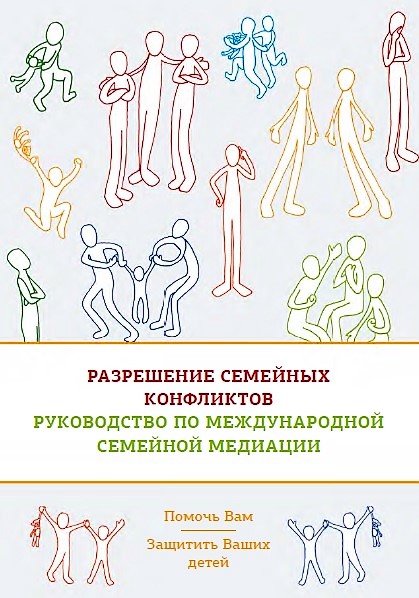International family mediation is a structured process where a neutral mediator assists conflict parties – family members – in discussion of the existing conflict between them considering interests of their children.
Family conflict becomes international in different cases, when more than one country is involved. It may be that, for example, there is a conflict in a family with parents being citizens of different countries; in a family living abroad; when parents live in two different countries; or when one parent wants to leave for another country.
In international family mediation needs of children are put at the forefront in conflict resolution. The main goal is to find such solutions, that could provide well-being of the children according to their rights, defined by UN Convention on the Rights of the Child (https://downloads.unicef.org.uk/wp-content/uploads/2010/05/UNCRC_united_nations_convention_on_the_ri...).
Some advantages of international family mediation:
Instead of uncompromising solutions in favour of one parent, mediation considers interests of each family member living in different countries. Such approach to conflict resolution is based on necessity of dialogue and defends interests of children and their parents. So, mediation helps each member of the family to find his own place in new conditions caused by change of family circumstances, even in case of emotionally difficult separation.
Sometimes family conflicts begin on the ground of cultural and religious differences, or differences between cultural customs of one country and laws of another country, which one parent has moved to. In such cases international family mediation helps parties of a family conflict to come to an agreement considering these differences.
In most cases international family mediation deals with problems of parents’ responsibilities, right for access / visiting (also known as “right to contact”), communication between children and both parents. When parents live in different countries, it’s difficult for them to agree on issues of upbringing, education and everyday life of their children. In such cases mediation can be used for settlement of emerging contradictions, as it considers different conditions in the two countries, as well as rights and interests of all stakeholders.
Negotiations between parents with participation of mediator are supported by principles of UN Convention on the Rights of the Child and other corresponding international conventions, regional documents and charters.
If mediation is used on an early stage and before the case goes to court, it can help to avoid conflict escalation. In case one parent moves abroad, mediation may help to determine place of residence of the children and to fix rights of the other parent to communicate with them. In such a way one can avoid crisіs, which could otherwise lead to illegal transfer or retention of children. International family mediation can be also effective at other stages of conflict and related court procedures. The parties may decide to use mediation parallelly to litigation. Sometimes a judge, judicial or executive body may offer them mediation to resolve a conflict outside court or through a court-related mediation service. In some countries law or a judge decision demands mandatory mediation before the trial begins. Some international and regional legal instruments are aimed to protect rights of parents and children, to preserve family ties between them, when one parent lives in another country. These instruments encourage peaceful resolution of family disputes, and in some of them mediation is directly mentioned as a mechanism for resolving such situations.
Some of these instruments are used also in cases of kidnapping; that is why mediation is also often used additionally to litigation in case of illegal transfer or retention of children. Sometimes parties turn to mediation after receiving court decision to reach an agreement to bring the subsequent life into compliance with such decision. It happens, because court decision resolves legal situation, but does not always stop personal conflict. In such cases, during mediation the main attention is payed to development of mutually acceptable ways to enforce court decision without further escalation of tension in personal relationships.
International family disputes are often complex due to interaction of different legal systems. Complex legal situation makes legal procedures long and expensive. There is also a risk, that counter lawsuits filed in different countries may lead to controversial court decisions that, at worst, can put the matter to a standstill. As an addition to court procedures, mediation may help to avoid such difficulties allowing parties to come to legally acceptable decision in several meetings. Less time spent in court automatically means lower cost of legal assistance. In countries, that are not members of international agreements on family law, the content of mediation agreement concerning custody and communication issues or other relative issues may nevertheless be recognized and enforced through appropriate legal mechanisms.
When one parent is afraid of possible loss, transfer or non-return of the child, mediation provides an opportunity to express and discuss such fears with another parent, who until then couldn’t even have guessed they exist. In such a way mediation can help to dispel suspicions and confirm, that both parents are equally concerned about the child's well-being. Mediator can provide information about the potential administrative, legal and psychological consequences of the hasty transfer of a child to another country, which can help the parent planning such actions to review his decision.
It’s important to understand, that legal issues play a decisive role in cross-border family disputes. Legal situation may be extremely complex due to interaction of two or more legal systems and various relevant international, regional and / or bilateral legal instruments. International family mediation has been developing since early 2000s. And it has proved its success and benefit as an addition to judicial way of resolving such situations.
International_Family_Medi...